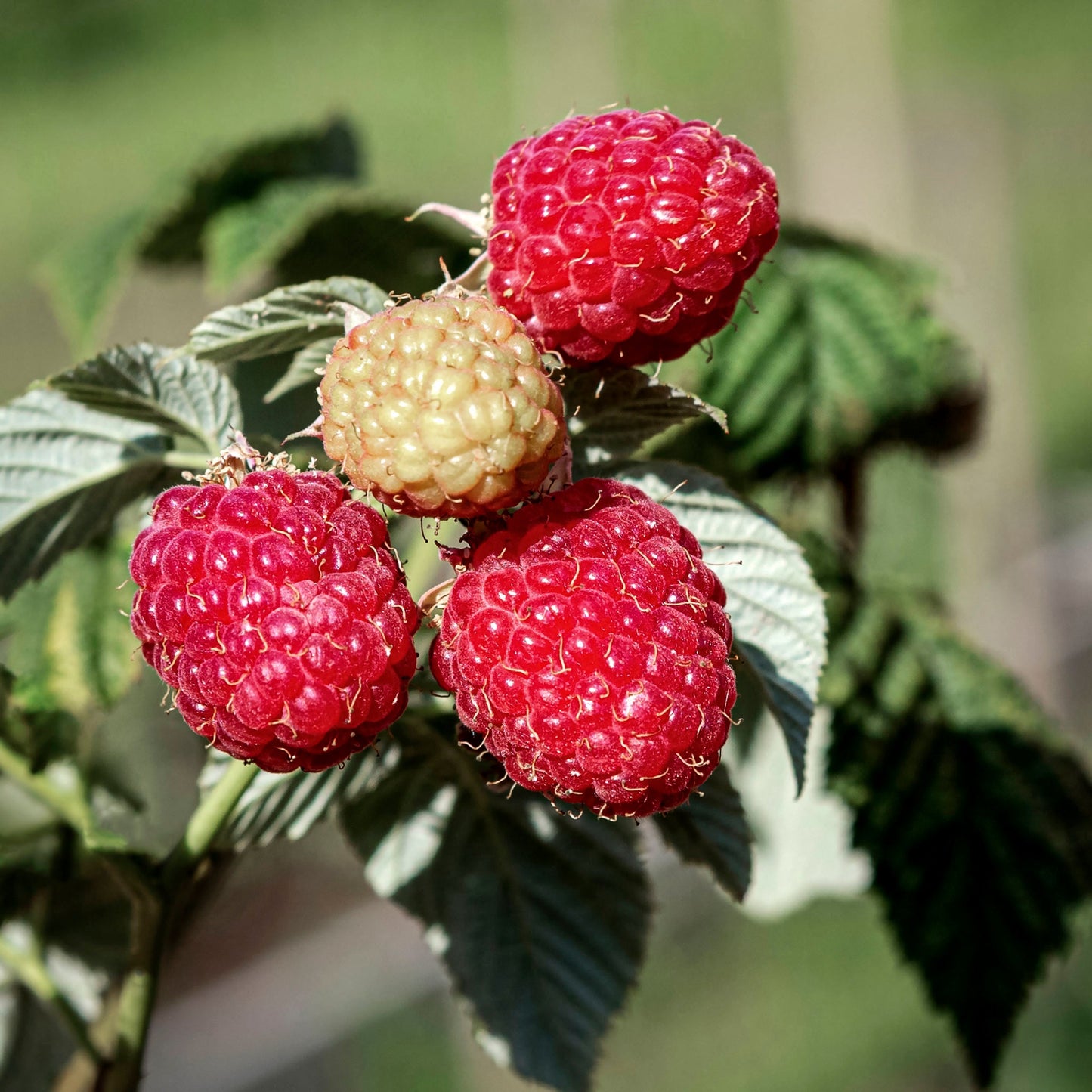Fruits And Shoots Plant Farm LTD.
Raspberry | Prelude
Raspberry | Prelude
Couldn't load pickup availability
Prelude is the earliest ripening cultiver on the market. It was first introduced in 1980 and quickly became a favorite among home gardeners and commercial growers. Prelude begins fruiting in early summer, typically mid June. Pair with a late-bearing variety such as Encore, for an extended harvesting window. Produces firm, flavorful raspberries that are perfect for fresh eating, jams, jellies, pies, and freezing. Their firm texture makes them ideal for handling and short-term storage. Prelude has a compact, upright growth habit and typically reaches a height of 3 to 4 feet. The canes are thornless and benefit from some form of support, such as a trellis or fence. Prelude is highly resistant to common raspberry diseases, including powdery mildew, root rot, and cane blight. They are cold-hardy, making them suitable for growth in USDA zones 4 to 8.

Common Raspberry Questions
What type of soil do raspberries need?
Raspberries grow best in slightly acidic, moist but well-drained soil. Avoid heavy clays. We recommend adding wood chips in the planting row and mulching around the canes helps conserve moisture and improve soil tilth.
How do I prune summer-bearing raspberries?
Summer-bearing raspberries produce fruit in a concentrated 3-4 week period, making them ideal for freezing or juicing. The best way to maintain and prune summer bearing raspberries is to remove all canes that have fruited during the dormant season. These fruited stems will be a light gray color compared to the new canes that will still have some green or red color to them.
How do I prune everbearing raspberries?
Everbearing raspberries produce fruit in early summer on last year's canes (floricanes) and again in fall on new growth (primocanes). To maintain them, prune out the oldest and driest canes while keeping the new growth, even if they fruited in fall, as they will fruit again next spring. Alternatively, everbearing canes can be cut to the ground every winter and allowed to grow up and fruit in the fall. While this means they won’t fruit at all during the early summer months, they will yield a bountiful fall harvest with the easiest pruning regimen.
Summer-bearing v.s Everbearing?
Summer-bearing raspberries produce a large, concentrated harvest in a short period, making them ideal for preserving, but they only fruit once per season. Everbearing raspberries provide a steady supply of berries from early summer into fall, offering fresh fruit for months, but they yield smaller amounts at a time. Everbearing varieties also require more selective pruning unless cut to the ground annually, while summer-bearing types have a simpler pruning routine.

